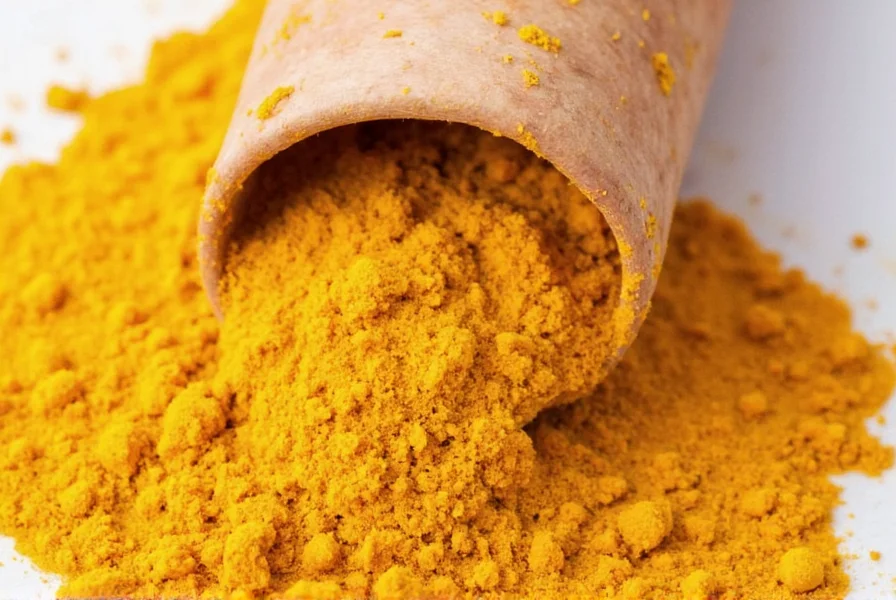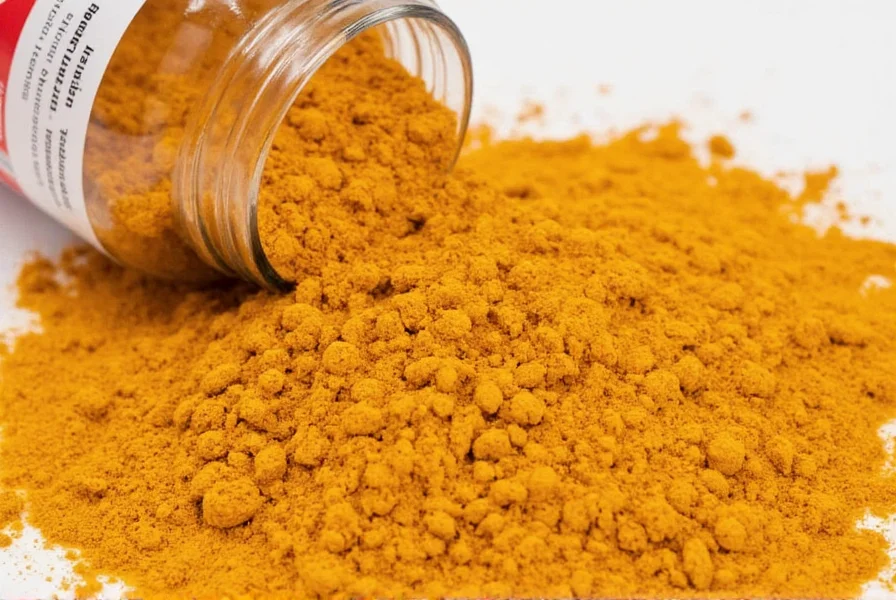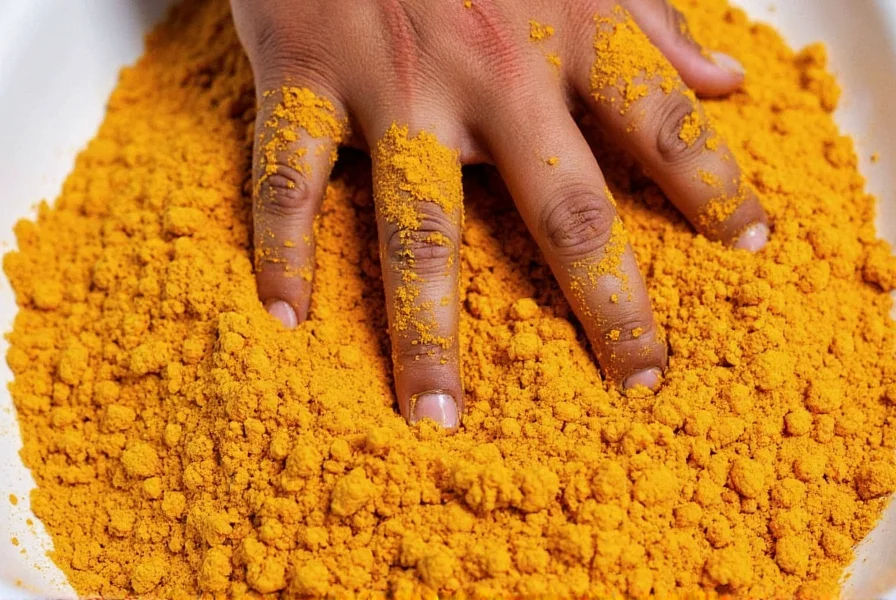For centuries, turmeric has been used in traditional medicine systems for various health purposes. Modern science is now investigating its potential benefits for liver health specifically. The liver performs over 500 vital functions including detoxification, protein synthesis, and production of biochemicals necessary for digestion. When liver function becomes compromised, it can lead to serious health issues. This article examines what current research says about turmeric's effects on liver health, separating established facts from hype.
The Science Behind Turmeric and Liver Function
Turmeric (Curcuma longa) contains curcuminoids, with curcumin being the most studied active compound. Curcumin makes up about 2-8% of turmeric by weight and is responsible for most of its potential health benefits. When examining turmeric benefits for liver health, researchers focus primarily on curcumin's antioxidant and anti-inflammatory properties.
Liver damage often involves oxidative stress and inflammation. Curcumin appears to combat these processes through multiple mechanisms:
- Boosting the body's natural antioxidant enzymes
- Reducing inflammatory markers like TNF-alpha and IL-6
- Modulating signaling pathways involved in liver cell protection
- Supporting healthy fat metabolism in liver tissue
Research Evidence on Turmeric for Liver Conditions
Several studies have investigated curcumin for fatty liver disease, which affects up to 25% of adults worldwide. A 2016 clinical trial published in Nutrition Journal found that participants with non-alcoholic fatty liver disease (NAFLD) who took 70 mg of curcumin daily for 8 weeks showed significant reductions in liver fat content compared to the placebo group.
Another study in the World Journal of Gastroenterology demonstrated that curcumin supplementation improved liver enzyme levels in patients with metabolic syndrome. Elevated liver enzymes often indicate liver stress or damage, so this finding suggests potential protective effects.
| Liver Condition | Research Findings | Evidence Strength |
|---|---|---|
| Non-alcoholic fatty liver disease | Reduced liver fat content, improved liver enzymes | Moderate (several human trials) |
| Liver inflammation | Decreased inflammatory markers in animal and limited human studies | Preliminary |
| Liver fibrosis | Potential slowing of progression in animal models | Early stage |
| Liver detoxification | Theoretical support, limited direct human evidence | Weak |
While these findings are encouraging, most human studies have been relatively small and short-term. Researchers note that scientific evidence turmeric liver benefits requires larger, longer clinical trials to establish definitive conclusions.
How Turmeric May Support Liver Detoxification
Many people search for turmeric liver detox benefits, but the term "detox" is often misunderstood. The liver naturally detoxifies the body through two main phases:
- Phase I: Liver enzymes convert toxins into less harmful substances
- Phase II: Additional enzymes make these substances water-soluble for elimination
Curcumin appears to support both phases by enhancing the activity of key detoxification enzymes. It also helps protect liver cells from damage caused by environmental toxins and medications. However, claims that turmeric can "flush" toxins from the liver lack strong scientific backing.
Practical Usage Guidelines
Understanding safe dosage of turmeric for liver is crucial for anyone considering its use. Research suggests:
- For general liver support: 500-1,000 mg of curcumin daily
- For specific liver conditions: 1,000-2,000 mg of curcumin daily (under medical supervision)
- Fresh turmeric: 1-3 grams daily (about 1/2 to 1.5 teaspoons)
Because curcumin has low bioavailability (poor absorption), it's most effective when combined with:
- Piperine (from black pepper) - increases absorption by up to 2,000%
- Healthy fats (like coconut oil or olive oil)
- Specialized formulations (phospholipid complexes, nanoparticles)
For those interested in turmeric supplement for liver health, look for products standardized to 95% curcuminoids with added piperine or formulated for enhanced absorption.

Safety Considerations and Potential Interactions
While turmeric is generally safe when consumed in food amounts, higher therapeutic doses require caution. Important considerations include:
- Medication interactions: Turmeric may interact with blood thinners, diabetes medications, and certain chemotherapy drugs
- Gallbladder issues: May worsen gallstones or bile duct obstruction
- Digestive effects: High doses can cause nausea or diarrhea in some people
- Surgery: Discontinue at least 2 weeks before scheduled surgery due to potential blood-thinning effects
Individuals with liver disease should exercise particular caution. While research explores does turmeric help liver inflammation, self-treating serious liver conditions with turmeric alone could delay necessary medical care.
Realistic Expectations for Liver Health
Turmeric shows promise as a complementary approach to liver health, but it's not a miracle cure. For optimal liver function, combine turmeric with:
- Healthy diet low in processed foods and sugars
- Moderate alcohol consumption or abstinence
- Regular physical activity
- Maintenance of healthy body weight
- Avoidance of unnecessary medications and toxins
When evaluating turmeric and liver enzyme levels, remember that improvements typically occur gradually over weeks to months, not immediately. Liver healing takes time, and turmeric should be viewed as one component of a comprehensive liver health strategy.

Conclusion
Current research suggests turmeric, particularly its curcumin component, offers potential benefits for liver health through its anti-inflammatory and antioxidant properties. Evidence is strongest for supporting liver function in non-alcoholic fatty liver disease, though more extensive human studies are needed. When considering turmeric for liver support, focus on quality products with enhanced bioavailability, appropriate dosing, and always consult with a healthcare provider—especially if you have existing liver conditions or take medications. Turmeric works best as part of a comprehensive approach to liver health that includes diet, exercise, and other lifestyle factors.
Frequently Asked Questions
How long does it take for turmeric to improve liver health?
Research suggests noticeable improvements in liver markers may take 8-12 weeks of consistent use at appropriate doses (typically 500-1,500 mg of curcumin daily). A 2016 study on fatty liver disease showed significant reductions in liver fat after 8 weeks of 70 mg curcumin daily. However, individual results vary based on the specific liver condition, overall health, and lifestyle factors. Liver healing is a gradual process that requires consistent support.
Can turmeric reverse liver damage?
Turmeric shows potential to support liver repair and prevent further damage, but cannot reverse advanced liver damage like cirrhosis. Research indicates curcumin may help reduce inflammation and fat accumulation in early-stage liver conditions such as non-alcoholic fatty liver disease (NAFLD). For significant liver damage, medical treatment under a healthcare provider's supervision is essential. Turmeric should be considered a complementary approach, not a replacement for conventional treatment.
What's the best form of turmeric for liver support?
The most effective forms combine high curcumin content with enhanced bioavailability. Look for supplements containing 95% curcuminoids with added piperine (black pepper extract) or formulated as phospholipid complexes. For culinary use, fresh turmeric root or high-quality powder consumed with black pepper and healthy fats provides better absorption. Standard turmeric powder alone has limited effectiveness due to poor absorption—only about 1% of curcumin gets absorbed without enhancement.
Can I take turmeric if I have liver disease?
Consult your healthcare provider before using turmeric if you have diagnosed liver disease. While research explores turmeric's potential benefits for certain liver conditions, it may interact with medications or be inappropriate for specific liver disorders. People with bile duct obstruction or gallstones should avoid therapeutic doses of turmeric. Those with advanced liver disease require medical supervision for any supplement use. Never replace prescribed liver treatments with turmeric without medical approval.
Does turmeric lower liver enzymes?
Some studies show turmeric may help normalize elevated liver enzymes, which often indicate liver stress or damage. A 2018 study in the World Journal of Gastroenterology found curcumin supplementation significantly reduced ALT and AST levels in patients with metabolic syndrome. However, elevated liver enzymes have many potential causes, and turmeric isn't appropriate for all cases. If you have elevated liver enzymes, work with your healthcare provider to determine the underlying cause before using turmeric as a treatment approach.











 浙公网安备
33010002000092号
浙公网安备
33010002000092号 浙B2-20120091-4
浙B2-20120091-4